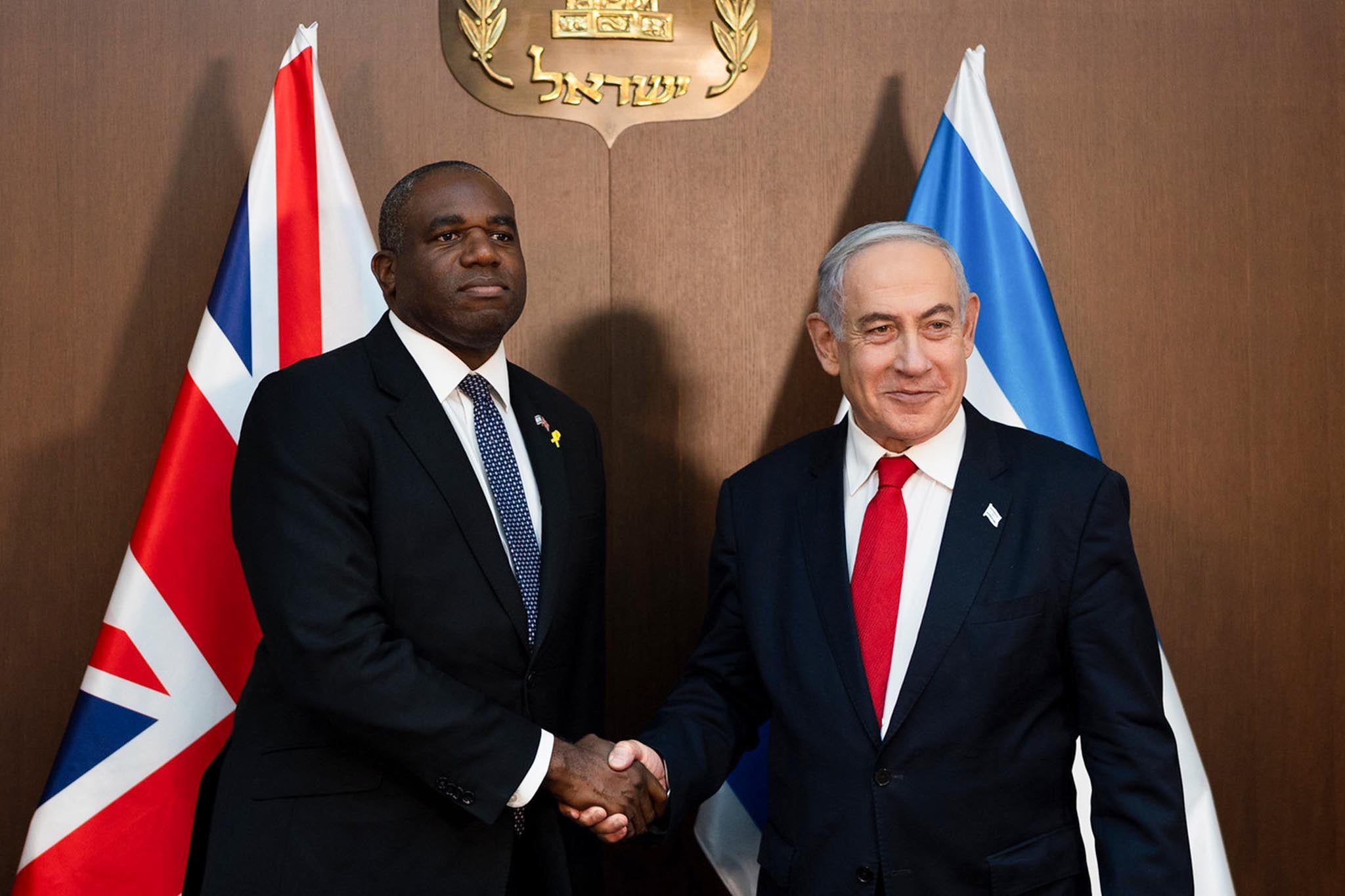There’s a good reason why Labour is sticking to the letter of the law to criticise Israel
Using lawyers to dictate government policy is never a good look – but Keir Starmer cannot afford to let the Middle East divide his party, as Europe did for the Conservatives, says Joe Murphy


“If you’re explaining, you’re losing,” Ronald Reagan observed, ushering in the era of narrative and soundbite-led politics. But what if a government decision sparks such a ferocious political storm that alliances at home and abroad start to fracture? That’s when prime ministers take cover behind their lawyers.
“This was a legal decision, not a policy decision,” Keir Starmer insisted at Prime Minister’s Questions today about the announcement of a partial ban on arms exports to Israel. Those Labour MPs yearning for the Labour prime minister to make a bolder statement against the nightly bombing of civilians in Gaza were disappointed.
Three days into one of its most important foreign policy announcements, Labour is managing to look beleaguered rather than bold. Among those who have lambasted the decision are Labour Friends of Israel, which said it would “risk encouraging Israel’s enemies”, particularly Iran, and the chief rabbi, who said it “beggars belief”.
Simultaneously, the decision was variously branded “virtue-signalling” and “incoherent” by commentators, since 90 per cent of arms exports will continue as normal; “too limited”, according to Amnesty International UK; and attacked as ineffective by Labour left-wingers who say it will make no difference to the nightly death toll.
If Reagan, whose own Middle East policies never amounted to more than icy Cold War calculation about American interests against the Soviets, had been watching, he might have updated his aphorisms to include: “Resorting to legal arguments means you’ve lost the argument.”
The realpolitik of the announcement is that Labour has made a significant change of tone and policy with its ban on just 10 per cent of weapons and component exports to Israel. It just lacks the nerve to say so out loud.
Announcing the partial embargo in the Commons, foreign secretary David Lammy was clear that it was based on legal advice and that to act otherwise would be a failure of duty.
But in a statement that tried to have it both ways, saying that he himself initiated the review soon after taking office in June, and hinted that wider politics played a part, saying to MPs: “Commitment to comply with international humanitarian law is not the only criterion in making export licensing decisions.” These were, he acknowledged, “tough choices”, and he would “always seek to take such decisions in line with our principles”.
In the days since, with the policy coming under withering fire from all sides, ministers and their backbench allies have taken cover behind their learned friends, trying to strip out the politics. At PMQs, Starmer argued that the divide with Rishi Sunak was simply that the Conservatives “didn’t think that international law matters”. Defence secretary John Healey, in an earlier media round, said the timing was "driven by the fact that this was a legal process".
It is a different story in Foreign Office circles, where the decision is being applauded as a landmark change from Tory years, during which officials felt candid criticism of Israel, including for potential breaches of international law, was suppressed by Tory leaders, especially Boris Johnson.
One former Conservative minister with expertise in the region, responding to Starmer and Lammy’s announcement, told The Independent: “This is courageous and principled in every conceivable way.” Lord Ricketts, the former permanent secretary to the Foreign Office and a former national arms advisor, publicly called the decision "long overdue".
The view among some diplomats is that Israel was clearly at risk of breaching international law because of the imprecise bombing of Gaza and the huge scale of civilian deaths. The conduct of illegal settlers and Israeli forces on the West Bank is a long-running concern that they believed Conservative leaders’ refused to address.
Starmer is a very different political animal, for whom the law and human rights are paramount. “There is no version of my life that does not largely revolve around me being a human rights lawyer,” he told his biographer, Tom Baldwin.
Equally, he is painfully aware of the many-headed political hydra that may have been unleashed by this decision. As a north London MP, he is very familiar with the damage caused to his party by anti-semitism during Jeremy Corbyn’s leadership. His closest allies include senior figures who are warm towards Israel, including Rachel Reeves, Pat McFadden and Lammy himself, who felt the need to describe himself as “a friend of Israel, a liberal, progressive Zionist” in his formal statement announcing the embargo on Monday.
As party leader, Starmer is also aware of the chunks bitten from Labour vote shares in constituencies where local Muslims voted for pro-Gaza candidates, including the defeat of ally Jonathan Ashworth in Leicester South that sent cold shivers through the ranks of backbenchers in towns with similar demographics. This week, the four MPs elected on pro-Gaza platforms, including Corbyn – who continue to call for a total arms embargo – formed a group in the Commons that will give them more clout in the years ahead.
So, the prime minister has to tread carefully at home. He can soak up Benjamin Netanyahu’s predictable anger at what he called a “shameful” decision, and can certainly afford to diverge with an outgoing Joe Biden administration. But he cannot afford to let the Middle East become, as Europe did disastrously for the Conservatives, a defining issue for Labour supporters and members.
Hence, under this government, criticism of Israel will be led by the lawyers and centred on international law. To do otherwise would risk losing at home.






Join our commenting forum
Join thought-provoking conversations, follow other Independent readers and see their replies
Comments